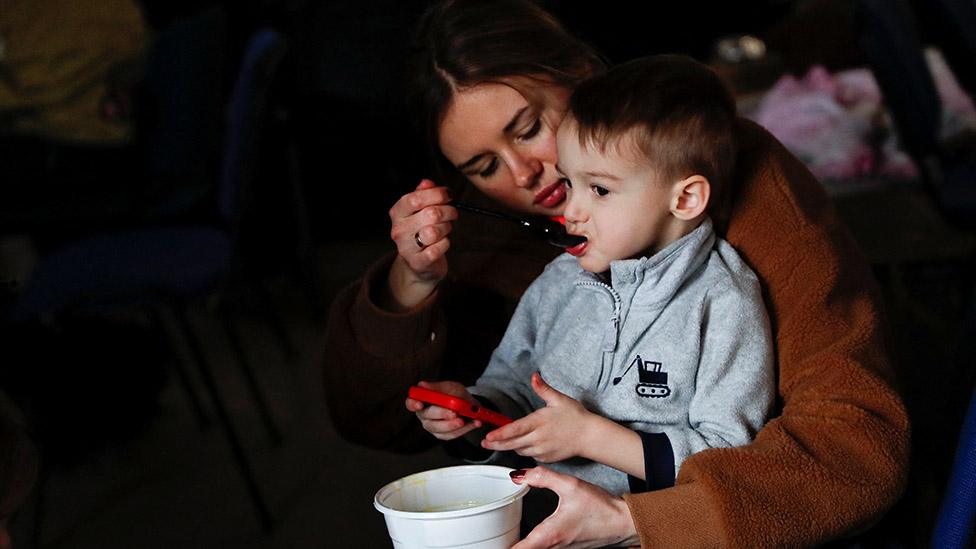Ukraine war: 'No cap' on refugees under new UK visa scheme
- Published
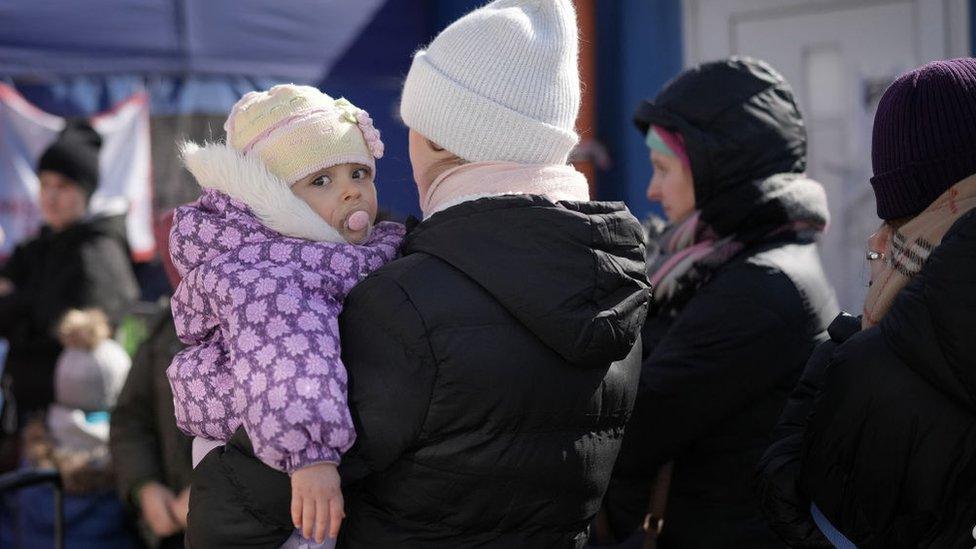
More than 2.5 million refugees have fled Ukraine since the invasion, the UN estimates
There will be no limit to the number of Ukrainian refugees who can live with UK host families under a new visa scheme, the government has confirmed.
It is hoped tens of thousands of displaced people will benefit from the Homes for Ukraine refugee scheme.
More details will be set out later, before a website goes live for people to express an interest in helping.
Hosts will receive £350 a month as a "thank you" from the government.
Health Secretary Sajid Javid told BBC Breakfast there would be "no cap" on the number of people who can be supported through the scheme.
"I'm pleased that we're doing this because as a country we have a very proud record of offering sanctuary to people from wars and from conflicts," he added.
The government has so far faced criticism - including from its own MPs - over the speed and scale of its response to the refugee crisis triggered by Russia's invasion of Ukraine.
Under the new scheme people in the UK will be able to nominate an individual or family to stay with them rent-free, either in their own home or in another property, for at least six months.
Hosts are not required to personally know the refugee they want to host. They will be matched with those seeking refuge in the UK after submitting a form.
Mr Javid said once refugees arrive they will be allowed to stay in the UK "for at least three years".
They will have access to the NHS and other public services, and their children will be able to attend local schools.
Local authorities will also receive £10,500 in extra funding per refugee for support services - with more for children of school age.
Applications to host refugees will be made online and both hosts and refugees will be vetted.
Levelling Up Secretary Michael Gove will make a statement in Parliament later to set out further details.
Asked if he might host a Ukrainian family himself, Mr Javid said it was something he and his wife were "starting to have a conversation" about.
"Whatever I do at a personal level, I most certainly will be helping," he added.
The first hosts and refugees will be matched this week, allowing the first Ukrainians to arrive in the UK through this route in about two weeks' time, the BBC's chief political correspondent Adam Fleming says.

'We've got to help'
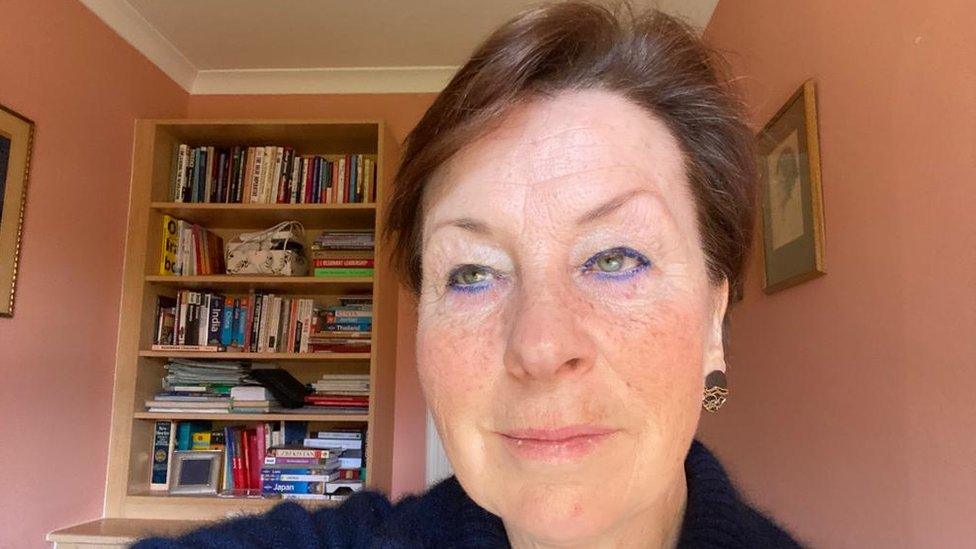
Maxine Taylor says she's got spare time and space to host two or three refugees
One of those hoping to help through the new scheme is Maxine Taylor, who lives alone in a four-bedroom house in Godalming, Surrey.
Maxine, who is self-employed and works part-time, says the "peace and quiet" of her more rural home might be a better option for traumatised refugees than a busy city.
But she does want more information from the government about the scheme - such as whether or not hosts will be taxed on the £350 monthly payment, and how the matching service will work.
She also wants to make sure anyone she takes in gets the mental health support they will need after fleeing a war zone.
Maxine says she's been wanting to find a way to help Ukrainians "since day one" of the invasion, and has felt "frustrated" that the government's visa schemes have been "so slow" to get off the ground.
"I've just been absolutely horrified by what's going on," Maxine says, adding that seeing images of young women and men signing up to fight for their country has "really touched me".
"I just feel I'd like to do my bit... we've got to help."

Organisations such as charities and churches will eventually be able to sponsor refugees, though there is no start date for this phase of the scheme yet.
Homes for Ukraine is the second visa scheme the government has set up since the war broke out.
The first has allowed Ukrainians with an immediate or extended family member in the UK to apply for a family visa to join them.
Some 4,000 visas have so far been granted through that route, the latest Home Office figures show.
The Home Office has defended, external requiring security checks on Ukrainians fleeing Russia's invasion. It says it must ensure the UK helps those in genuine need as it's seen people falsely claim to be Ukrainian.
Labour's London Mayor Sadiq Khan said the UK's plans to help those fleeing Ukraine have been "embarrassing" compared with those of other countries.
He told Good Morning Britain that people, businesses and councils were "ready to step up" and welcome refugees but the system to do so has been "far too complicated".
Labour leader Sir Keir Starmer previously described the Home Office's response as "too slow, too narrow, too mean", while Liberal Democrat leader Sir Ed Davey said Home Secretary Priti Patel should be sacked for "incompetence, indifference and sheer inhumanity" in leading the response.
The NSPCC said it had concerns about safety checks on prospective hosts through the Homes for Ukraine scheme.
The children's charity said it was "vital child protection is built into every stage of the government's and local authorities' response to this crisis".
Putin to pay for 'war crimes'
Asked about the bombing of a maternity and children's hospital in the city of Mariupol last week, Mr Javid said Russia had made some 31 attacks on health facilities in Ukraine since its invasion.
"These are war crimes and Putin will be held responsible," he said.
In a visit to the Hague on Monday, Justice Secretary Dominic Raab said the UK would give financial and technical support to the International Criminal Court to help it investigate the situation in Ukraine.
He said it was vital to ensure anyone who committed war crimes was held to account and that commanders on the ground, as well as the Kremlin, "need to know that right now".
Meanwhile, 21 Ukrainian children with cancer have arrived in the UK to receive NHS treatment, the health secretary said.
The children have been given six-month visas to get them out of Ukraine quickly but Mr Javid told Sky News these would be extended "to at least three years".

War in Ukraine: More coverage

Elsewhere, the prime minister spoke to Ukrainian President Volodymyr Zelensky on Sunday night.
Boris Johnson pledged "to pursue more options for bolstering Ukraine's self-defence", No 10 said, and discussed efforts to end the war.
The government is to send 500 portable electricity generators for use in facilities such as hospitals and shelters which have lost power following the invasion - something President Zelensky made a direct request for.
Mr Johnson condemned the murders of US journalist Brent Renaud and countless innocent Ukrainians, Downing Street said.
The prime minister is hosting a series of meetings with Nordic and Baltic leaders in London and Chequers this week.
No 10 says he will urge them to work together to ensure no further nations fall victim to Vladimir Putin's aggression.


Have you signed up for the Homes for Ukraine scheme? Email: haveyoursay@bbc.co.uk, external.
Please include a contact number if you are willing to speak to a BBC journalist. You can also get in touch in the following ways:
WhatsApp: +44 7756 165803, external
Tweet: @BBC_HaveYourSay, external
Or fill out the form below
Please read our terms & conditions and privacy policy
If you are reading this page and can't see the form you will need to visit the mobile version of the BBC website to submit your question or comment or you can email us at HaveYourSay@bbc.co.uk, external. Please include your name, age and location with any submission.
- Published13 March 2022
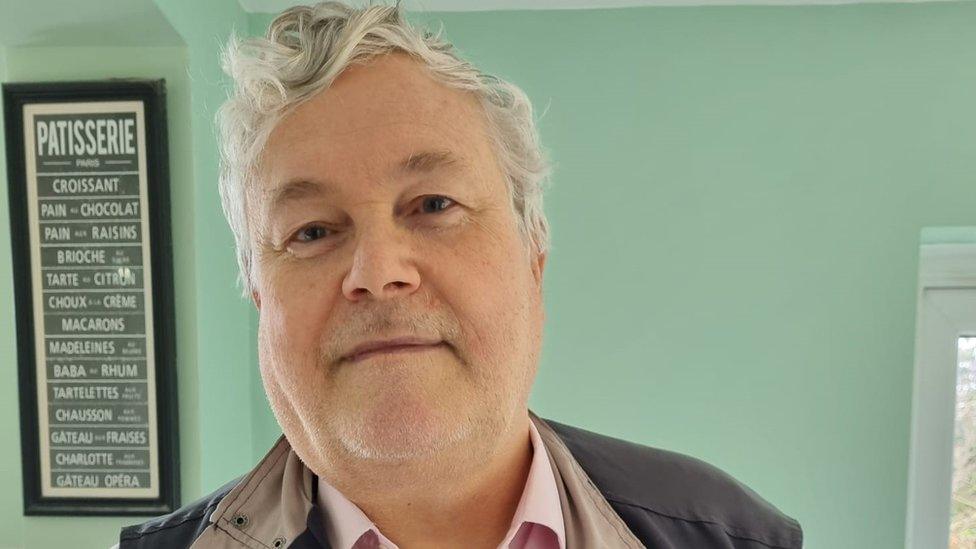
- Published13 March 2022
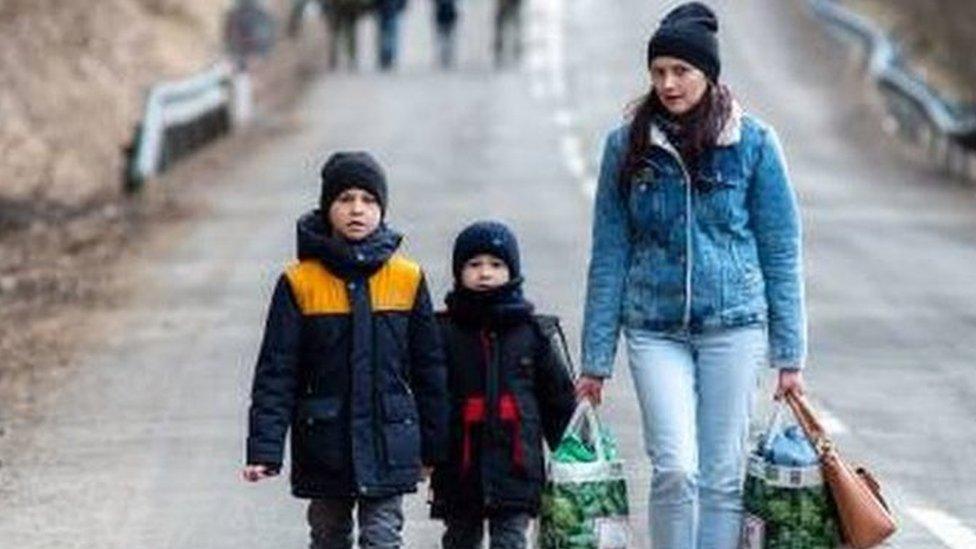
- Published11 March 2022
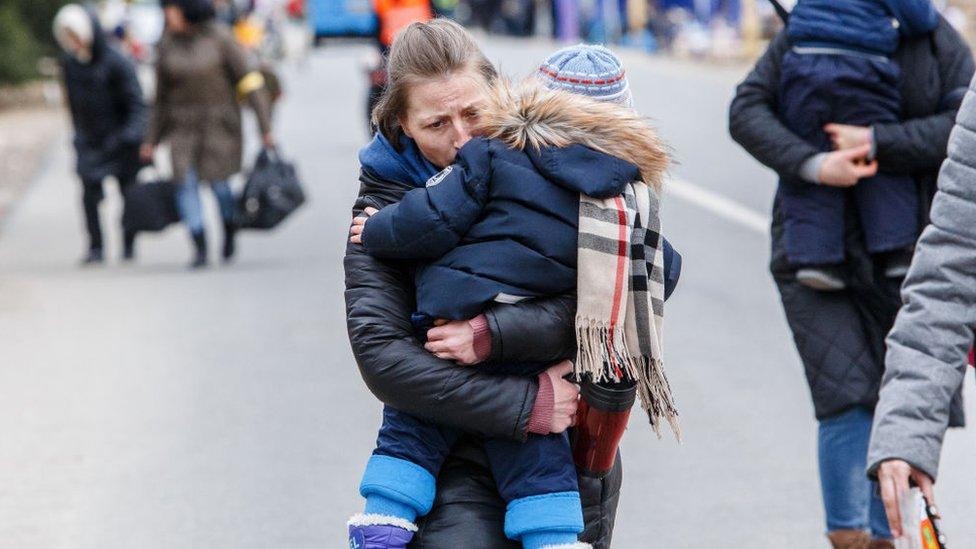
- Published13 March 2022
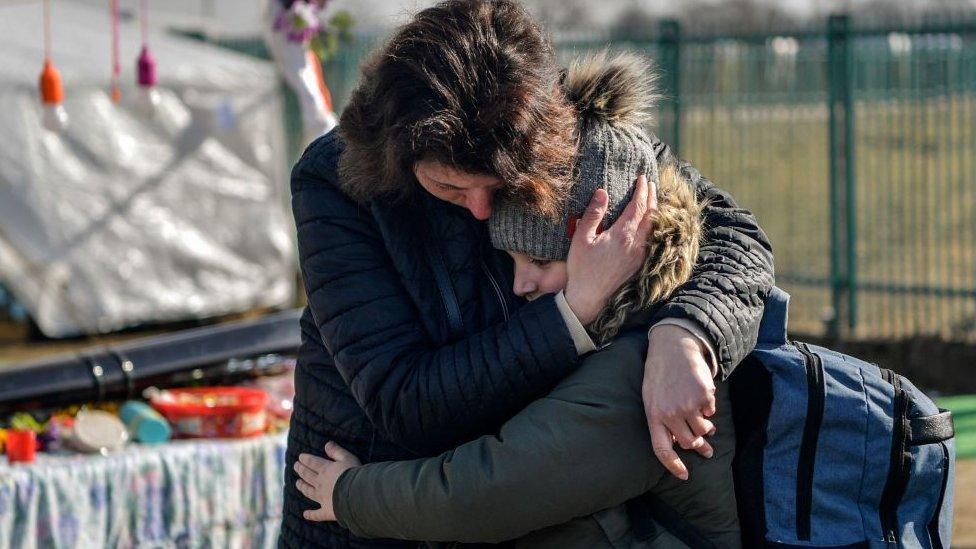
- Published13 March 2022
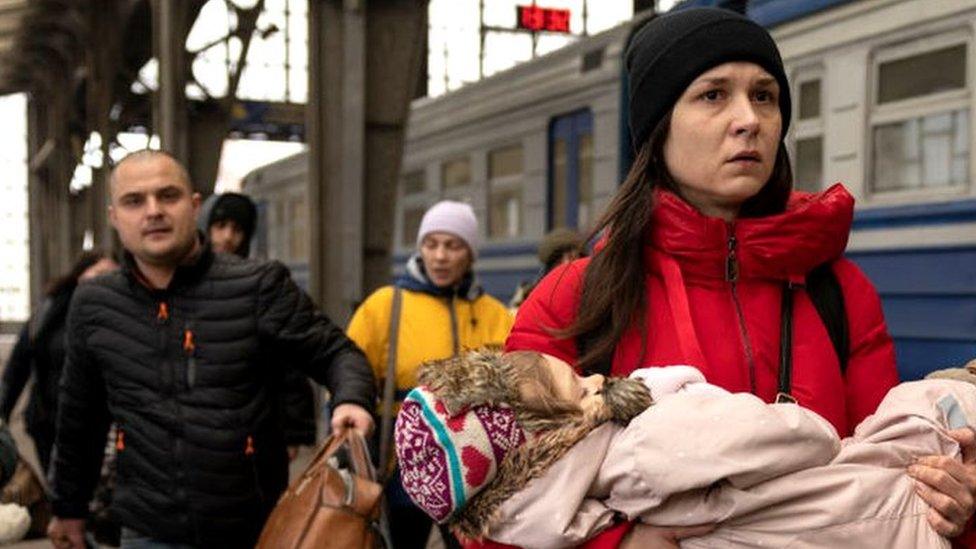
- Published8 April 2022
